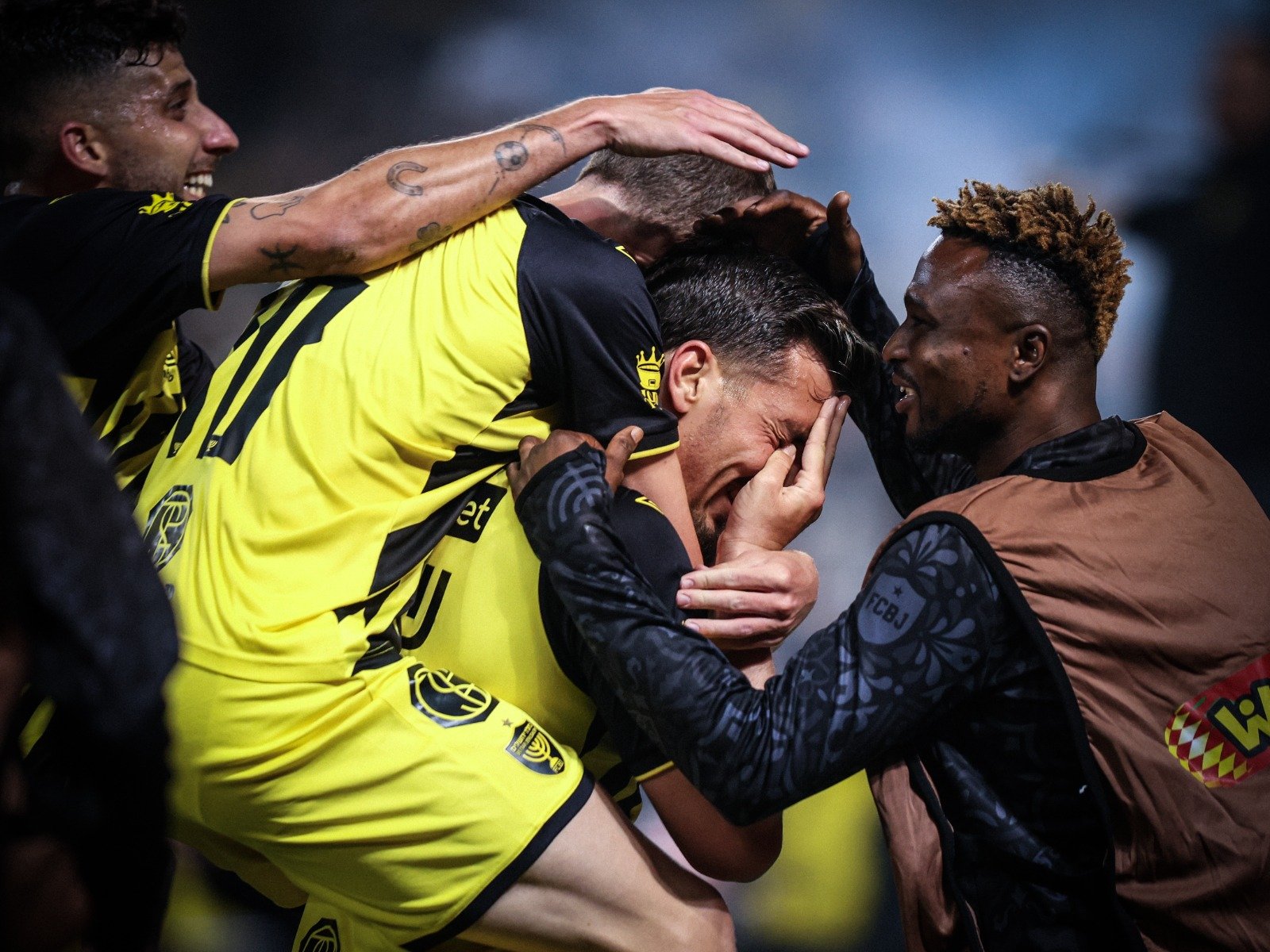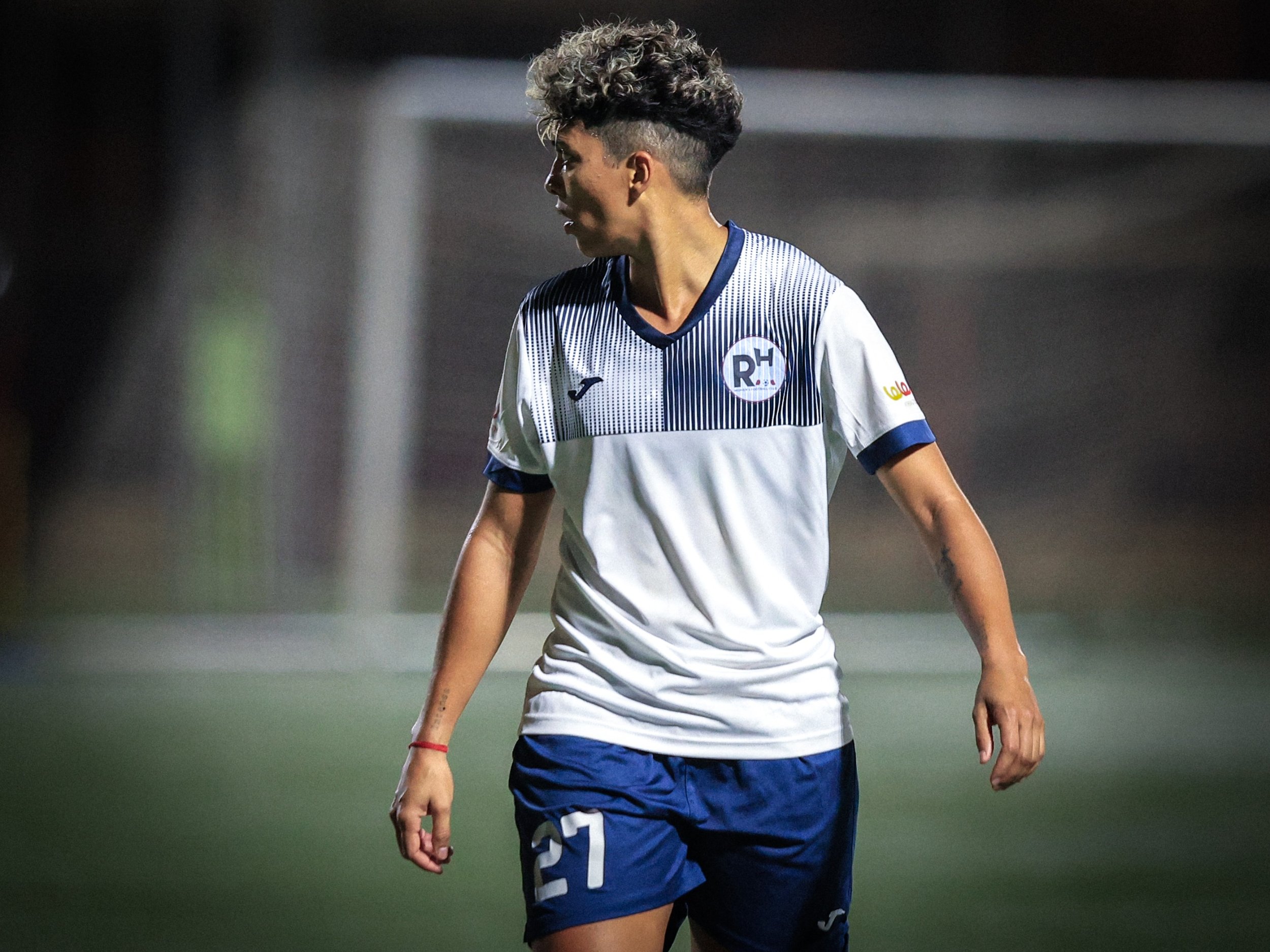When you look at the field in the village of Mash'had where Maccabi Bnei Reineh trains, it doesn't seem like much is happening.
A grass field, tall metal fences, and a grey structure along a dirt road in the industrial area between the hills of Galilee. Quiet. It's only when you step inside that you understand.
During the week of the victory over Maccabi Haifa at the Sammy Ofer Stadium - the second win against the defending champions in a month - the atmosphere at the facility is lively. Partly due to the victory and the kickoff of the playoffs, of course, and partly due to the wedding of the team's player Amith Meir the previous evening. As part of the first article in a series focusing on Arab football in Israel, "Israel Hayom" gained unrestricted access to the home of the league's sensation.
Reineh is the team of the year in the Israeli Premier League. The small club, founded anew in 2016, climbed all the way from fifth division to the top flight in just six years, marking another historic season with their first-ever playoff appearance, two victories against the champions, and nearly extinguishing the championship race. So, Reineh didn't win the title (yet), but considering the club's journey from a village of less than twenty thousand people, there's no other way to look at them but as a kind of Cinderella. “Cindereineh”.
Reineh's success signals a good period for Arab football in Israel. Talents like Anan Khalaili, who's set to move abroad, Legionnaires like Mohammad Abu Fani (the assists king in the Hungarian league), and for the first time ever, two teams - Reineh and Bnei Sakhnin - in the Premier League playoffs. What's unique about Reineh's success is that one after the other, they're shattering Israeli football and Arab football in Israel's conceptions.
Changing and breaking conceptions, "do it yourself"
It's easy to think that such success comes from massive financial investment and a broad team of professionals, experts, and analysts, but the truth is Reineh's model is very lean. Perhaps even too lean.
Contrary to other clubs in the Premier League, Reineh is somewhat of a "one-man show" and a lot of "do it yourself" with a compact team. The central trio consists of owner Said Bsoul, coach Sharon Mimer, and team manager Ahmed Jaber, who work together, with Bsoul leading. "There's an Arabic saying, 'Arkun amamu 'ala khuwalo nam alqurut bila 'ashaa - If the uncles from the mother's side take the child to their uncles from the father's side, the child will sleep hungry'," Bsoul responds with a proud smile when asked why he prefers to do it himself and work with a small team.
Bsoul, 46, may be relatively new to football, but in the two seasons he's been in the Premier League, he's proven that change is possible, and after last season, when, after three rounds, he fired coach Adam Hadia, who had promoted him two leagues in two years, but when he appointed Sharon Mimer in his place, contrary to all expectations and the former employers of the latter, gave the coach full professional backing and continuity. Contrary to the stigma about "capricious team owners" who fire coaches after a bad game, don't pay players, and interfere with the lineup, Bsoul operates differently.
After a conflict with Zar Yovanovich who left the team in a public dispute last season, Reineh's foreigners, among the best in the league, are getting entirely different treatment this season. They all live in Haifa, as neighbors, with cars and new apartments with a view of the sea. This keeps players like Mohammad Osman, Mark Costa, and Nemanja Lubislijevic happy, and makes them perform like local players.
Bsoul isn't the only one breaking Reineh's conceptions. Coach Sharon Mimer shattered a huge conception in Israeli football. He left the "Mimer circle," the nickname for the carousel of coaches that are constant in the league, named after him. "I proved myself this year. I started and finished a full season for the first time," says Mimer, whose double wins against Maccabi Haifa and Beitar Jerusalem and two draws against Maccabi Tel Aviv elevated his status in Israeli football. "I have what it takes to work in big teams. Hapoel Be'er Sheva, Maccabi Haifa, or any challenge like that, after what I've been through and the experience I've gained - I'm ready."
Mimer built a strong squad of Reineh players. Foreigners, those who played for him in the past, and local products. Goalkeeper Gad Amos (didn't miss a minute this season), Roi Shukrani, Shlomi Azulai the striker, Mamadou Samba from Guinea-Bissau, joined captain Na'al Houtabah, Louie Hilaf from this season's discoveries, and Abdallah Jaber who played for Mimer in Hadera and Sakhnin. "I'm very happy here," says Jaber, who a few years ago was a player for the Palestinian national team (56 appearances) and a huge star beyond the fence. "I wanted to return to Israeli football, and Reineh, thank God, I lack nothing. There's perfect peace here, and you can work and succeed."
Quietly working
Ahmed Jaber, the team manager, is responsible for maintaining this daily peace. He ensures that nothing is lacking for Mimer and the players. "Reineh is a small team where everyone gives extra, and it's intense, but the satisfaction is immense." Like Mimer, Jaber also receives support from Bsoul to work and shape the club's routine together with the coach. "In Reineh, there's no pressure from the crowd, who support us in every situation. We're given peace, both the fans and the owner, and for the players and the club, it's a blessing."
That's how Reineh grows step by step. Adding a gym here, building a player area with ping pong and PlayStation there. Expanding as needed, and when needed. Every time adding another improvement, and upgrading. Once they used to transport equipment from Reineh to Mash'had by trucks. Now everything is already there.
Alongside success, Mimer returns and emphasizes that if Reineh wants to stick at the top of Israeli football and achieve truly big things, things will need to change. "There are many good things here, and there are still things that need to be there and aren't yet. We've progressed, there's peace to work and focus only on football, but that won't be enough if we want to grow further."
Politics Out, Local Identity In
Alongside the modest conditions and the small team that operates everything, Reineh is a success story happening in a very tense period and during a war. In Reineh, they don't talk politics. "There's no difference here between Muslims, Jews, Christians, and Druze. It's all the same," says Mimer. In contrast to the prominent national-political narrative of Bnei Sakhnin, the other Arab team in the league, which represents the Palestinian national narrative within Israel, Reineh is placing its identity as a village, a local team, and an Israeli team. In this story, everyone is included, everyone is equal, and everyone receives the same treatment. When Anan Khalaili, one of the team's stars and soon to be a player abroad, came back from the Palestinian national team, a welcome committee awaited him at the entrance to the village, regardless of whether he was an Arab or a Muslim.
With this spirit, Reineh enters the playoffs. The team that's shattered Israeli football's conceptions is seeking to go further, to establish itself as a permanent fixture in the Premier League and as one of the league's leading teams. Whether they'll succeed is still an open question. But one thing is certain: in Reineh, they've already changed the face of Israeli football and Arab football in Israel.
The article was first published in Israel Hayom.




